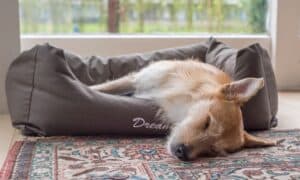“This post contains affiliate links, and I will be compensated if you make a purchase after clicking on my links.”
The “Nothing In Life Is Free” or NILIF program is a type of dog training. It teaches your furry friend to trust you as its leader in a humane and non-confrontational way.
Harsh corrections to gain control of your dog and show him “who calls the shots” are a thing of the past.
And instead of force, humans can ignore certain behaviors and have the dogs work for privileges. This is to teach them that humans are in charge.
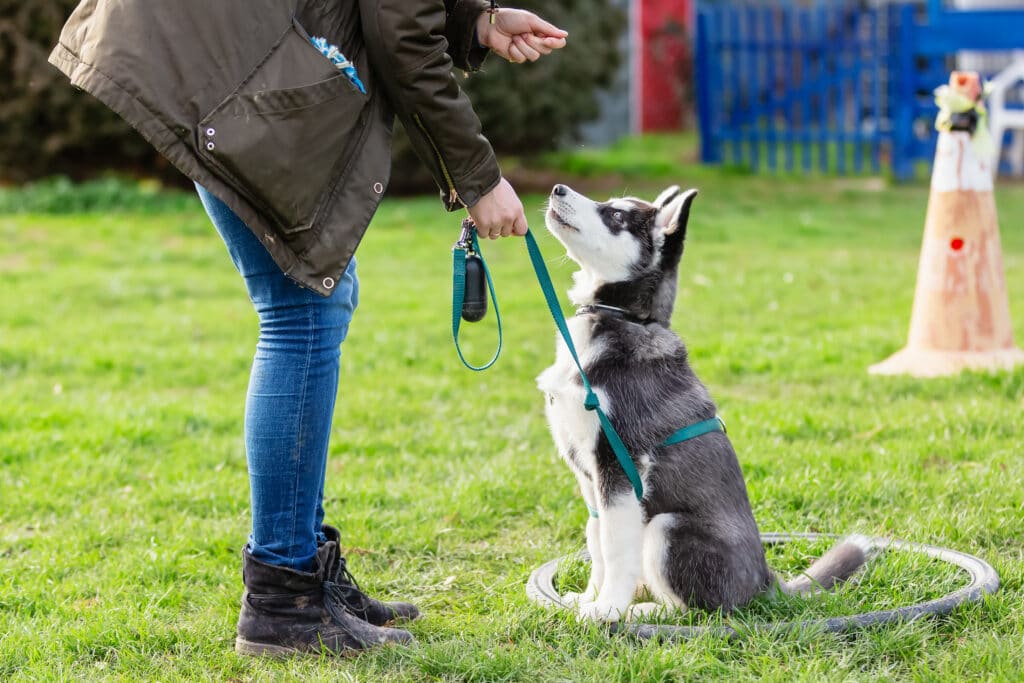
However, it is worth noting that the NILIF dog training program is not a substitution for behavioral work. And should only be used on dogs in good health and of stable temperament.
If you have any questions regarding your dog’s behavior, seek professional advice before beginning NILIF dog training. But for the average dog, this program is valuable.
When is the best time to begin NILIF dog training?
Here are some basic questions to ask yourself before you consider the NILIF dog training program:
- Do you do things like leave food down all day for your dog?
- Give in and play when he jumps on you?
- Get frustrated when he jumps on you just before dinner?
- Do you allow your dog to get away with undesired manners (like barking for attention)?
- Does it act up when it is time to go for walks?
- Does your dog run roughshod over you?
If you answered YES to most or all of these, then it’s time to get serious and begin NILIF dog training.
When dogs demand attention

Think of it as a toddler throwing tantrums and always getting what they want.
The first time a child sees something he wants, they start a fuss and the parent gives in. And this starts the cycle of “If I fuss, I will get it.”
If the parent ignores the fussing, the child will escalate it a bit. They give in and the child realizes, “Gee, I got him/her to break down.”
And then next time, the child will work even harder to get mom or dad to give in. That’s it if s/he does not crack immediately.
The more mom or dad breaks down, the more the child will escalate that tantrum. They may have to endure hours of screaming, kicking, crying, throwing things, and possibly even vomiting.
Eventually, the child will stop. The tantrum just does not work any more. Yelling, or even pushing the child away is not what he is looking for, but it is something.
You need to totally turn off to the tantrum and endure it. As long as a child is not hurting himself, others, or breaking things, tantrums can often be allowed to run their course with children.
Dogs want attention, whether negative or positive
Like children, dogs like attention. For some dogs, attention is attention – be it positive or negative. And this is why NILIF dog training is needed. We have to be able to control their most desired resources.
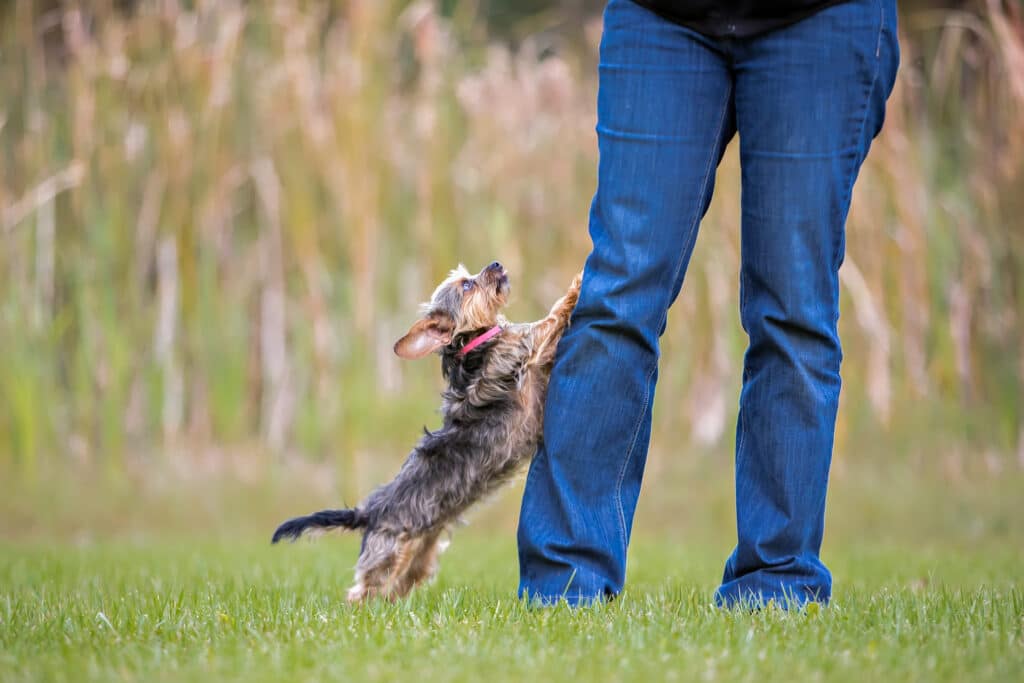
When they ask for any form of attention, deny it. They have to learn how to give you something positive in return if they want the attention so badly.
Endure the extinction period. And things will improve if everyone in the house is consistent. Again, you can give all the attention you want to the dog as long as it is by YOUR RULES and not his.
Behaviors learned from demanding attention
Many undesired behaviors are learned out of demanding attention. For example, when your dog jumps on you and you pat him, it is more likely to jump for attention the next time he wants it from you.
Other dogs may also poke or bark in your face. The key here is that, the dog is in control of the situation when he gets the attention he demands. And this is not good.
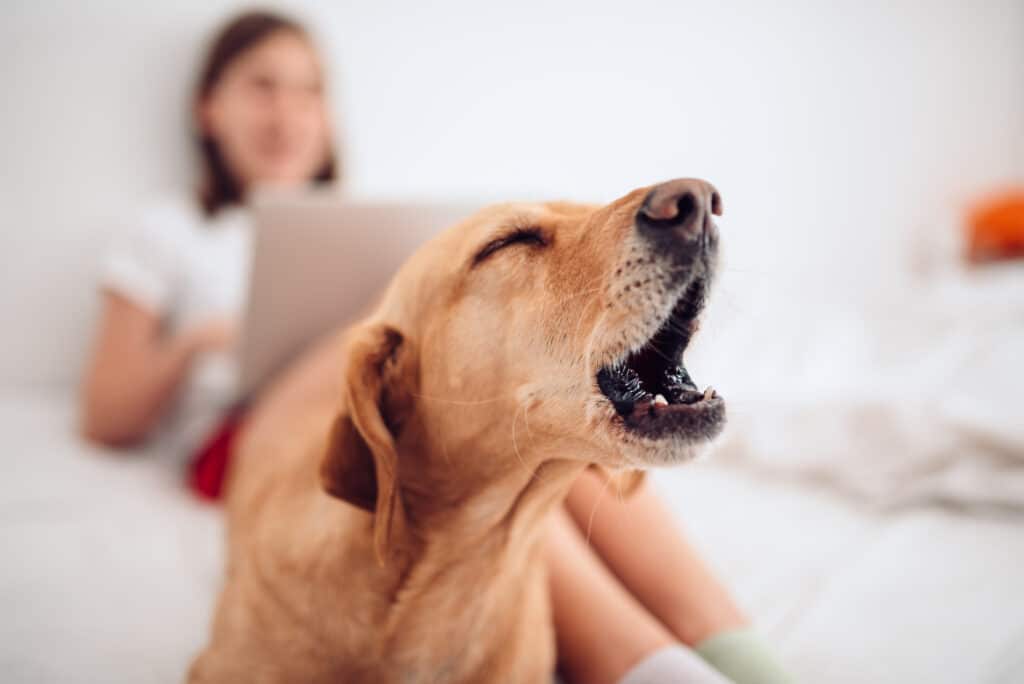
Furthermore, your dog is also developing undesired behaviors, not because he is bad, but because you are reinforcing them. And it’s time to stop this using the NILIF dog training program.
NILIF dog training’s storm before the calm
When you start the NILIF dog training, your pet may get a bit confused. They’ll think, “Hey, this always worked in the past!”
Chances are, he will now try in earnest to get your attention. He will burst, explode and the behavior will get worse – or as we can call it – The Storm Before the Calm.
Hold your ground and do not give in. Giving in at any time is going to encourage the undesired behavior to continue. They’ll think, “See, I finally broke you down!”
How to apply the NILIF dog training program
You, as the human, have the power. With the NILIF dog training program, you are also empowering the dog to learn self-control.
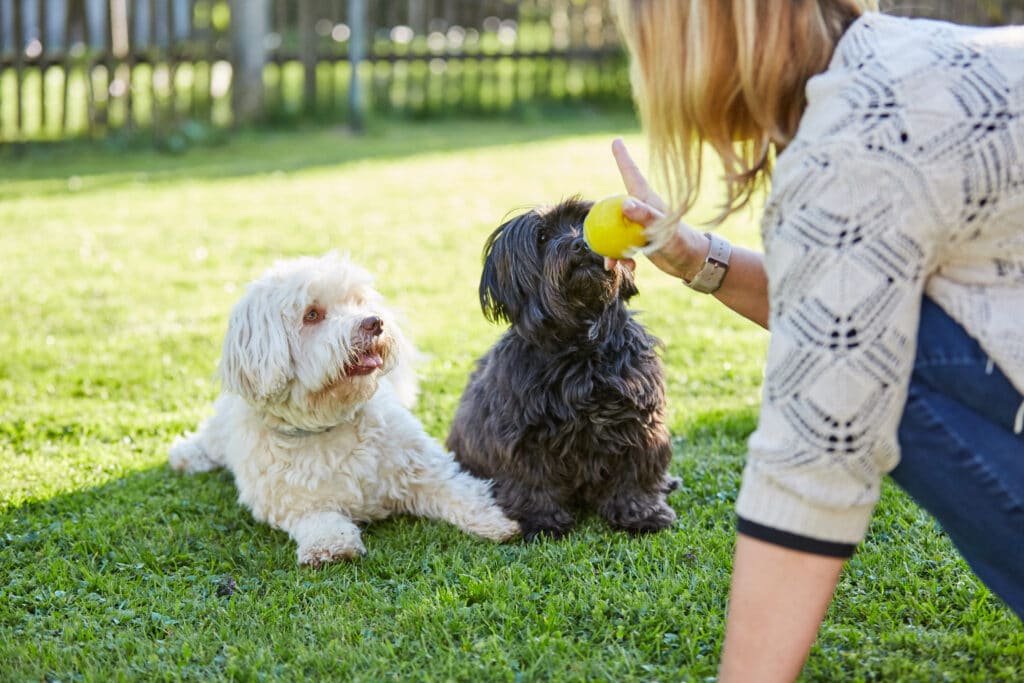
Again, do you just give in to your dog? Does he get food and play for free and there is no “currency” he has to pay with to get it? Change that. You have the power; you are in control – not them.
Here’s how you can start the NILIF dog training with your pet:
- Deny constant attention. Since the dog is doing this for attention, you are going to deny him just that. Walk away or totally ignore him. Instead, you can give him attention as long as it is by your rules and not his.
- Encourage your dog to come to you and sit. If all four feet remain on the floor, he can get attention. But if he starts that undesired barking, jumping or mouthing, walk away. Be consistent and be fair.
- Teach them to “stay”. Teaching your dog to “stay” is a basic yet important cue. It can help in a lot of things, and that includes breaking bad habits.
- Maintain your composure and level of being in charge. Dogs that are confused about who is in control are more likely to act out.
Consistency is key
With the NILIF dog training program, consistency is important. Simple things like making the dog “work” or “pay” for things can help re-establish your control and your dog’s consistent routine.
Insist the dog sits before it gets to eat. If it sits automatically, regain control by having it down. If it takes a few bites and walks away, dinner is over until the next meal (but don’t forget to feed your dog two meals a day). You control the food. It does not decide when meal times are – you do.
Does your dog get up on your bed or furniture when he feels like it? Change. He has to now wait until he is given a command to come up.
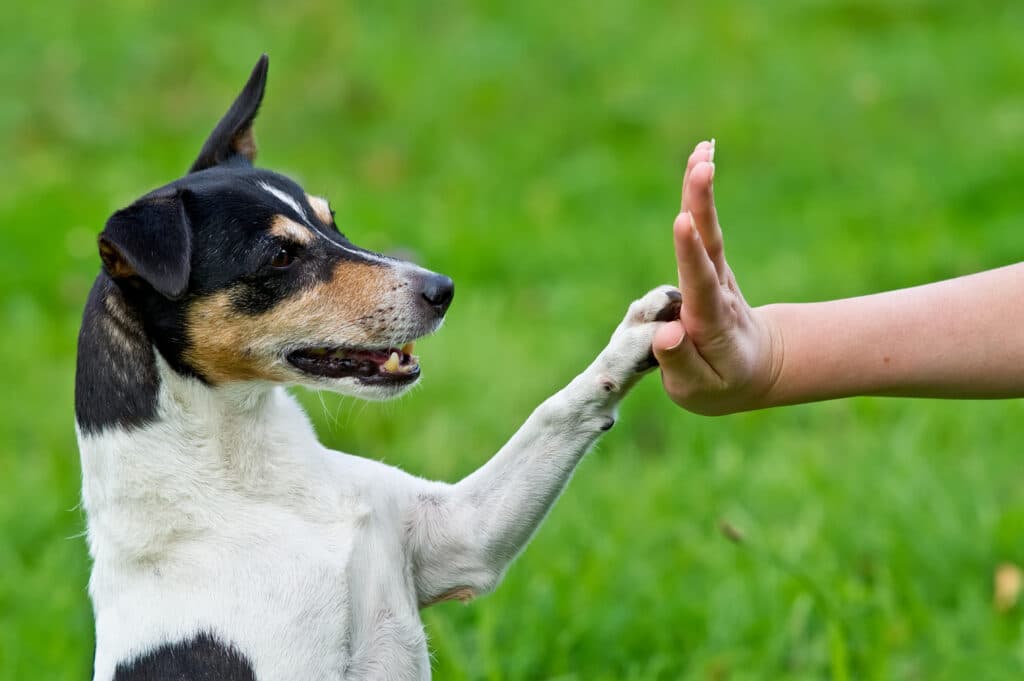
Before play and during play, stop the dog and have it work. You can use a clicker and teach it tricks like “shake” “play dead” “high five.” If your dog does these, it can continue to play with you. If not, the game is over.
Be firm and fair in your training
The dog is given power in his own right. If he does what you ask, he gets what he wants. He is in control to an extent. But you are determining the outcome and what has to be done in order for that to occur.
It’s sort of like a pay check. You do what you are supposed to and when you are supposed to,
your pay continues, your job continues. Failure to do this and your job may very well end as does that pay check!
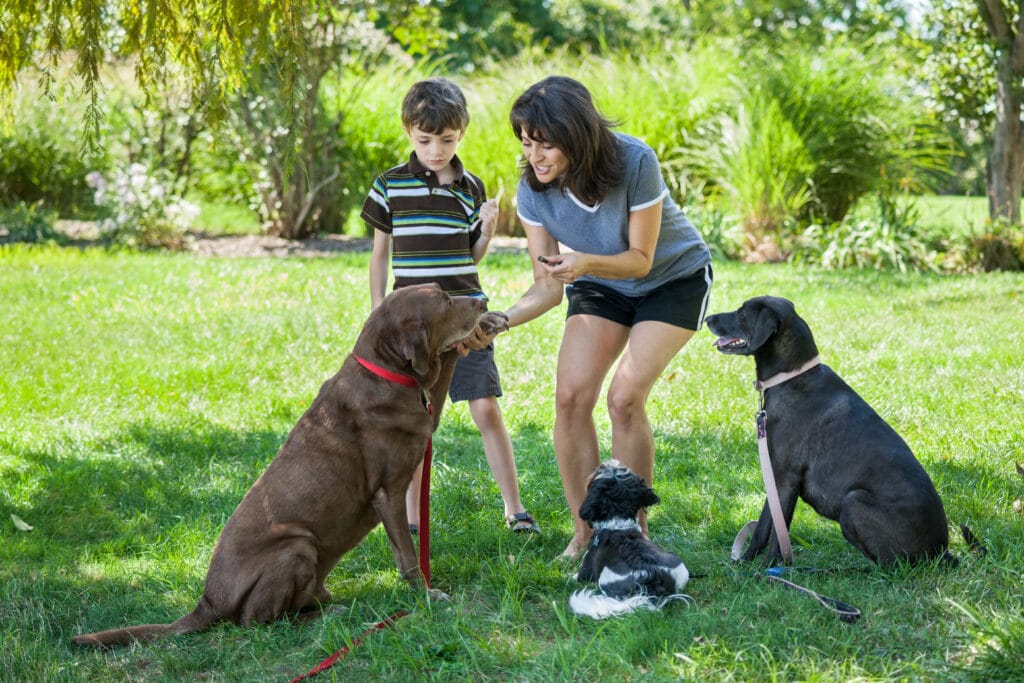
In addition to this, if you have more than one dog, all of them need to follow the same rules and get similar rewards.
The reason why they should not get identical rewards is because dogs have different temperaments. Furthermore, they are motivated by different things. Some dogs are motivated by treats, but some prefer pets or praises.
Conclusion
With your dog no longer in charge of the house, you will have to make more of an effort to engage in play and socialize. But it is worth it.
NILIF dog training does not mean denial of attention or play, it just means that the balance of power should shift (in a humane way) and the human should be in charge.






